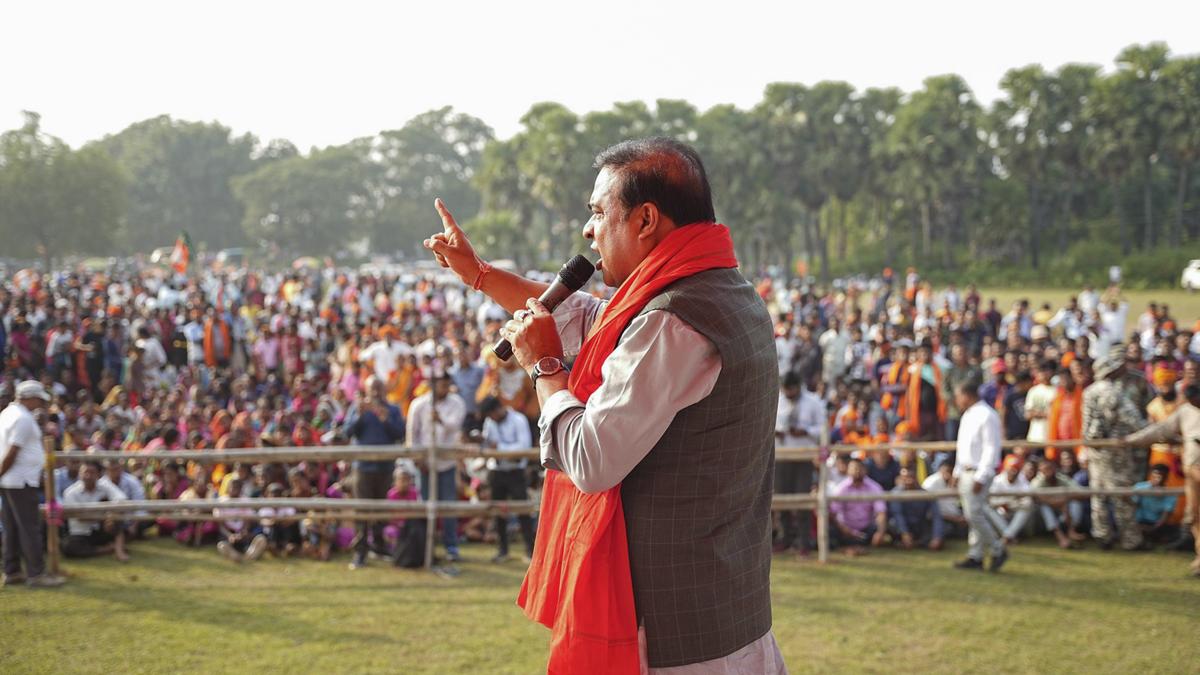Jharkhand Assembly elections: NDA’s double-engine push falls short

Assam Chief Minister and BJP leader Himanta Biswa Sarma addresses a public meeting on November 18 for Jharkhand Assembly elections.
| Photo Credit: PTI
Assam Chief Minister and BJP co-in-charge for Jharkhand elections, Himanta Biswa Sarma, along with Union Minister Chirag Paswan, both emphasised on the need for a double-engine sarkar during their campaign visits to Jharkhand. They highlighted this as key to ensuring faster development and greater progress in the tribal State. Despite the BJP’s strong push for the double-engine narrative, the party failed to resonate with Jharkhand’s voters.
The recent Lokniti-CSDS post-poll study explores whether voters in Jharkhand believe the double-engine sarkar is necessary for the State’s development. It also looks into what influenced the voters in this tribal State —whether it was the work done by the Central government or the State government.
A divided verdict on double-engine sarkar
When asked whether it is essential for the same party to rule both at the Centre and in Jharkhand for the State’s development, voters were somewhat split. However, a larger share, 46%, believe it is not necessary, while 40% think it is (Table 1).

The opinion on double-engine government appears closely tied to the political party that voters support. Over half of the voters in the INDIA coalition expressed the view that a double-engine government is not essential for the State’s development. This sentiment was also shared by a majority of voters supporting Jharkhand Loktantrik Krantikari Morcha (JKLM) and other parties, with more than half of their supporters agreeing (Table 1).
In contrast, voters of the NDA held a different perspective, with nearly three in ten believing that a double-engine government is crucial for the State’s overall development.
Jharkhand Assembly elections 2024: Full coverage
Work done by State vs. Central government in shaping votes
When voters were asked which government’s work mattered most to them in this election — State or Central —two in five cited the State government, while three in ten pointed to the Central government. For one in five voters, the work of both levels of government was equally important. This perspective was reflected in their vote choices, with those prioritising State government work favouring the INDIA coalition, and those focused on the Central government’s work supporting the NDA. Additionally, the INDIA coalition held a 11% point lead among those who considered the work done by both governments (Table 2).

The post-poll study reveals a divided verdict on the double-engine sarkar, with slightly more voters in Jharkhand believing it unnecessary for development. Despite the BJP’s strong push for a double-engine government, the electorate’s preference for State-level governance, led by the JMM, played a decisive role in the NDA’s defeat, as voters prioritised the work of the State government over that of the Centre.
Vibha Attri (Research Associate at Lokniti-CSDS)
Published – November 26, 2024 03:15 am IST









